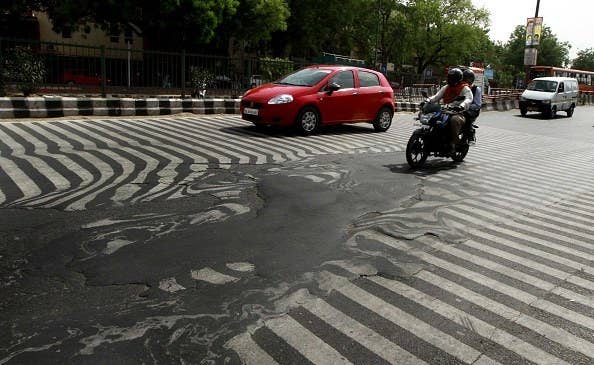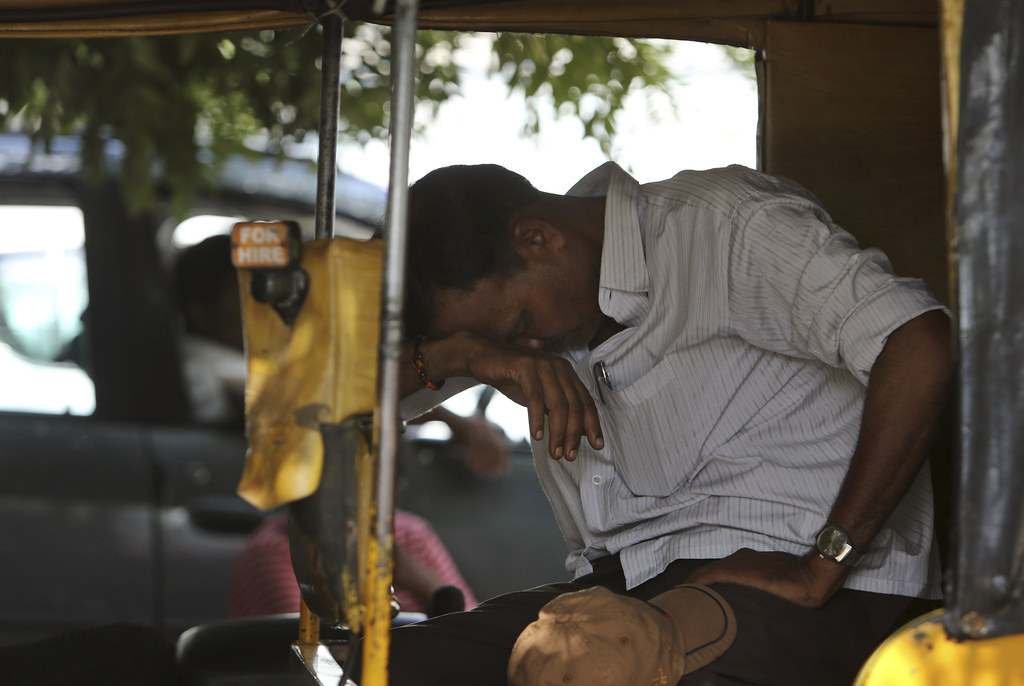The death toll has now passed 1,800, ITV News reported on Friday.
Meteorological officials reportedly said the severe weather could continue for at least another two days before cooling monsoon rains make their way across the country.
Original report below.

A brutal heatwave has claimed more than 1,300 lives in India, mostly in two southeastern states, NDTV reported on Wednesday.
The temperature soared to 117 degrees Fahrenheit in the state of Odisha on Monday, the director of the Indian Meteorological Department (IMD) told CNN. The temperatures were hot enough to melt asphalt on city streets.
The death toll in the state of Andhra Pradesh reached 1,020 on Wednesday – with the district of Guntur recording 130 deaths alone. At least 340 people have died in the state of Telangana.
The IMD issued "red box" warnings for three states – Odisha, Jharkhand, and Andhra Pradesh – for May 26 and predicted that a severe heatwave would continue in these states for the next few days.
A "red box" warning indicates temperatures inching upwards of 113 degrees Fahrenheit – leading to higher chances of heatstroke, dehydration, and fatalities, the Hindustan Times reported.

The country's capital of Delhi and other states are expected to continue facing sweltering conditions until the end of May, according to the IMD.
On Tuesday, Delhi recorded a high temperature of 113 degrees Fahrenheit.
This has been the worst heatwave in India since 2010, when at least 250 people died, Scroll.in reported. Seven people were reported to have died in Ahmedabad, a city in the state of Gujarat that is the only one in India to have an operational heat alert system. Similar systems exist in France, UK, and Australia, according to Scroll.in.
Around 75 million households in India do not have access to electricity, according to a 2014 report to the prime minister.
A monsoon, expected to hit India's coastline on May 31, should bring respite from the heat, officials said.
